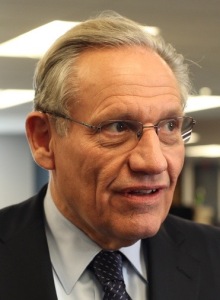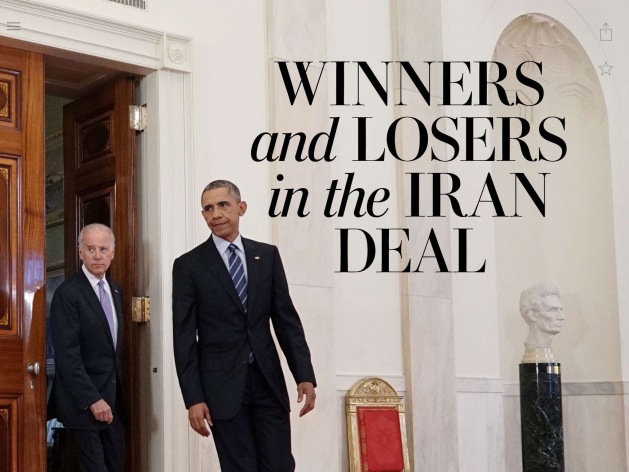 The Boston Globe is replacing its tabloid arts-and-feature section, g, with a standalone full-size Living section later this month, according to a year-end message to the staff from editor Brian McGrory.
The Boston Globe is replacing its tabloid arts-and-feature section, g, with a standalone full-size Living section later this month, according to a year-end message to the staff from editor Brian McGrory.
Most of McGrory’s message, a copy of which was sent to Media Nation by a kind soul in the Globe newsroom, is a look back at what has been a year of accomplishment for the paper. (McGrory has also written a round-up of his picks for the Globe’s most important stories of 2014.)
McGrory’s superlatives aside, it’s hard to think of a news organization this side of Jeff Bezos’ Washington Post that is expanding its coverage the way the Globe has under the ownership of John Henry. The paper has also been consistently excellent journalistically under McGrory’s watch, and, as he notes, it seems to be paying off in terms of advertising, paid circulation and a growing digital audience.
The full memo is below. But before I get to that, some other Globe news: veteran New Hampshire political reporter James Pindell is returning to the Globe as “a digital-first political reporter and playing a key role in our effort to augment our coverage of the first-in-the-nation contest,” according to an email by Jennifer Peter, the Globe’s metro editor, which someone forwarded to me.
Pindell, whom I’ve known and respected for years, worked most recently for WMUR-TV in New Hampshire, a stint that ended in a minor controversy after he asked U.S. Senate candidate Scott Brown an impertinent question that turned out to be based on a mistaken premise. Pindell apologized and briefly disappeared from the air, which suggested an overreaction on management’s part. WMUR’s loss is the Globe’s gain.
Also this week, the departures at the Globe continued. Among those announcing their retirements were columnist Larry Harmon, business reporter Chris Reidy, health writer Deborah Kotz and former Spotlight and higher-education reporter Marcella Bombardieri. Harmon has been an important voice in holding city politicians accountable. I hope interim editorial-page editor Ellen Clegg finds a suitable replacement.
As for g, which was launched under New York Times Co. ownership, I doubt many will miss it. Mrs. Media Nation was a fan, but since we’re digital subscribers except on Sundays we rarely got to see what it looked like in print.
And now (drum roll, please) Brian McGrory’s year-end message to the staff.
Hey all,
Same-old, same-old in 2014, so I’ll be brief.
Wrong again.
We, meaning you, had an extraordinary year by every possible measure, certainly in terms of consistently superb journalism, but also with a driving sense of innovation in the work we produce and the way we present it. This was a landmark year for the Globe, one that I hope gives you a deep sense of pride.
Consider, for a moment, the new initiatives — Address, the absurdly readable Sunday real estate section; Capital, the Friday political section that is equal parts delightful and vital; the stand-alone Business section, which is off to a strong start and is set to improve even more; Crux, the company’s groundbreaking website dedicated to Catholicism around the world, done so well it will serve as a template for future initiatives; a restructured Spotlight Team that is set to produce signature investigative journalism with greater frequency; a stunning stand-alone Living broadsheet section to replace the current g tabloid, debuting the second week of January; the Cape Cod summer initiative; record-setting Business magazines, including the new “Game Changers;” the reintroduction of Score, as beautiful as it is insightful; artfully redesigned Sunday regional sections to the north, south, and west of Boston; and a revitalized Sunday Travel section that has become mandatory reading.
None of this came easy. All of it is vital. What made it possible is the high quality journalism upon which everything new and old is built.
Let’s be honest: 2013 was a tough year to follow in terms of accomplishment. And sitting at Columbia University in May, watching Chris Chinlund, Jen Peter, and Mike Bello accept the Pulitzer Prize on behalf of the entire staff, well, that’s a moment that I’ll forever cherish. I’m not sure Bello ever cradled any of his kids as lovingly as he did that plaque.
But you followed great work with still more great work, even amid the demands of so much new initiative. Mike Rezendes gave voice to those who wouldn’t otherwise have had one with his landmark stories on the inhumane and sometimes deadly treatment of inmates at Bridgewater State Hospital — work that led to immediate, meaningful reform. Likewise in the accountability category, Spotlight produced a searing, three-part series on dangerous student housing conditions in this, the college capital of America, a project that has launched vows for widespread change. Kay Lazar and Shelley Murphy kicked the marijuana dispensary licensing process on its side through their in-depth reporting, forcing the state to scrap its deeply flawed work and start from scratch.
I’d put our 2014 narrative work up against any news organization in the country, and in that regard, I’m specifically thinking of Jenna Russell’s breathtaking account of Michael Bourne and his mother, Peggy, as they battled not only his mental health issues, but a cruelly complicated system that seems to go out of its way not to help. Include there, too, Evan Allen’s heartbreaking story of a Newton father’s quest for justice after his son’s overdose death, Maria Sacchetti’s tense, poignant look at the deaths and recovery efforts along the Mexican border, and of course, Sarah Schweitzer’s extraordinary account of a Woods Hole biologist and his lifelong attempt to save the endangered right whale, a story that was accompanied by a groundbreaking online presentation. There are more, many more.
Day to day, Metro performed an extraordinary public service by driving the heroin epidemic into the public conscience. Business blanketed the single most readable storyline of the year — the Demoulas saga — with expert coverage that drove the plot for months. Photography continued to produce the kind of thoughtful, magnificent images that made readers linger on our pages in awe.
Sports did what our Sports staff always does: It offered the best coverage for the most sophisticated audience of any paper in the nation. Washington produced the deeply reported Power Lines series, along with its consistently probing coverage of two of the most interesting officials in the country — Elizabeth Warren and John Kerry. Living/Arts gave us a record number of colorful front page offerings and, as important, solidified Sunday Arts as one of the most popular and important sections of the Globe. Perhaps that last point is inevitable when you have the all-star roster of critics and writers that we have. The Sunday magazine remains among the most vital aspects of the paper, with consistently sophisticated stories that are devoured by readers.
Our design team was ever bolder in print and online, not only with new sections and sites, but with the front page as well. Our copy editing is ever more meticulous and consistently collaborative. Our graphics are often the envy of the industry, which explains why bigger organizations keep hiring away our directors.
And our digital team has quite literally been transformative, newcomers and veterans, all of whom have banded together to produce an evolving, ambitious namesake site that is a pitch perfect platform for our collective work.
Does any of this matter? Yeah, it does, very much so.
Advertising came in better than expected this year, by no means enough to declare success, but certainly a sign of improvement. In terms of readership, there were many, many weeks in the autumn that saw a net upside in print subscriptions. There are precious few papers that see anything like that. And Bostonglobe.com saw a 34 percent increase in visits and a 26 percent increase in pageviews. We also have more digital-only subscribers than any newspaper in the country outside of the NYT and WSJ, and we’ve begun adding to that number at a strong clip in the last quarter.
I’m way too late to say, “To make a long story short,” right? But please bear with me for one final point.
We can’t let up. To sit still is to beckon defeat, what with the breakneck pace of technology advances and the irrefutable fact that competition continues to lurk all across the web. We need all your creativity, all your ambition, all your brains – all across the enterprise. We also need to take full advantage of an enviable moment. We have committed owners, the Henrys, who value quality over short-term profits, and who believe to their core that the way to make the Globe a self-sustaining enterprise is by thoughtful investment combined with unfailing discipline. We have a CEO, Mike Sheehan, who believes deeply that great journalism is good business. We have a thriving region. We have a robust staff of stellar reporters, editors, and visual journalists, many of the best in the nation. We have all the ingredients in place for profound, durable success.
I’ll set up some times in January to share plans and trade ideas for 2015. Meantime, please take more than a few moments of pride on this New Year’s Eve, for where we’ve been, where we are, and where we are poised to go.
My deepest respect and appreciation to you all.
Brian
Correction: An earlier version of this post described the departures of Larry Harmon, Chris Reidy, Deborah Kotz and Marcella Bombardieri as “buyouts.” That was based on an incorrect assumption on my part. Harmon told me he was not offered a buyout, and I do not know about the other three.
 Hard to believe, but my time as a Joan Shorenstein Fellow at Harvard’s Kennedy School will be ending soon. Recently I recorded an HKS PolicyCast podcast under the expert guidance of host Matt Cadwallader. We talked about my research regarding wealthy newspaper owners and whether the innovations they’ve introduced may show the way for others. I hope you’ll give it a listen.
Hard to believe, but my time as a Joan Shorenstein Fellow at Harvard’s Kennedy School will be ending soon. Recently I recorded an HKS PolicyCast podcast under the expert guidance of host Matt Cadwallader. We talked about my research regarding wealthy newspaper owners and whether the innovations they’ve introduced may show the way for others. I hope you’ll give it a listen.







